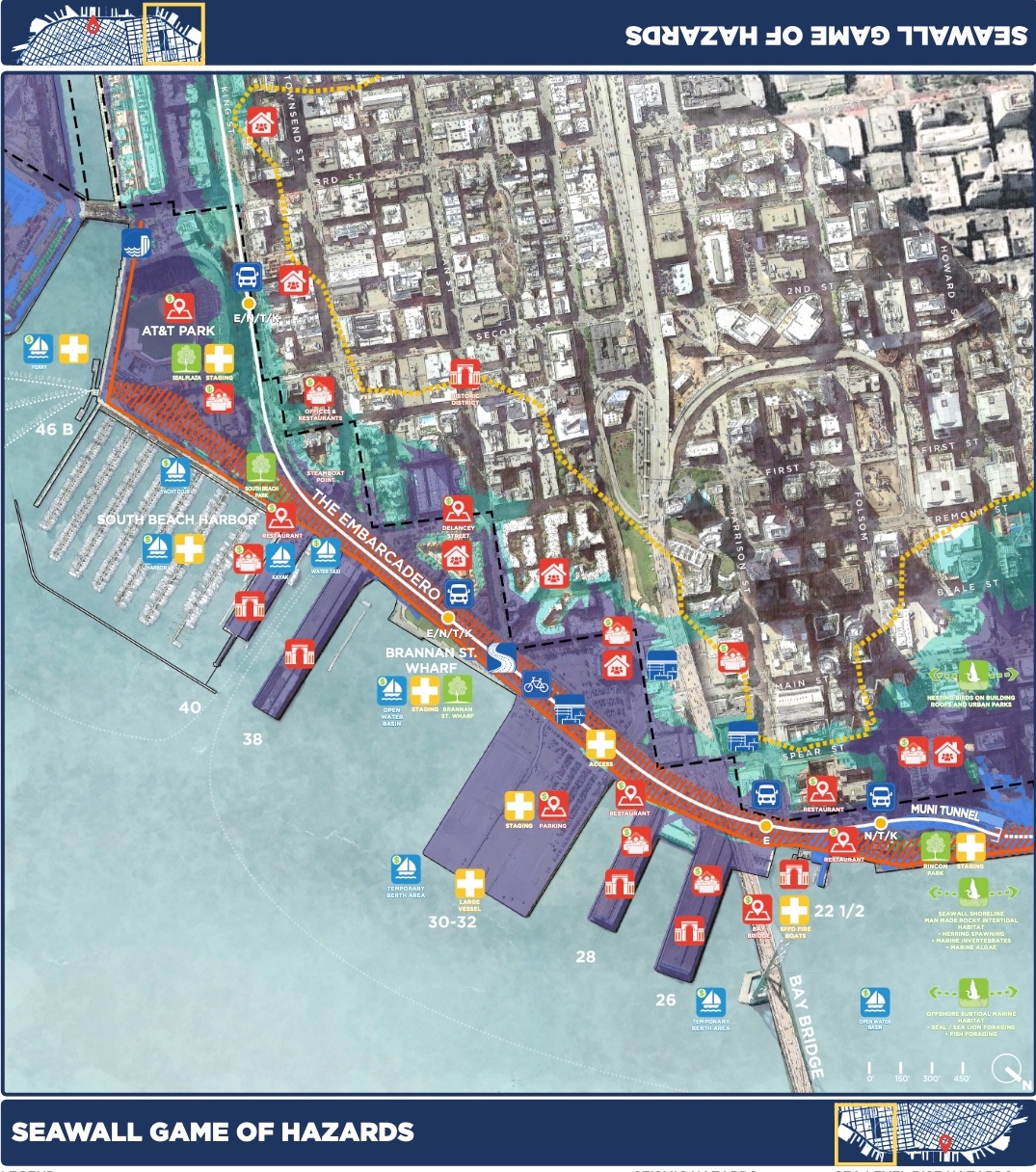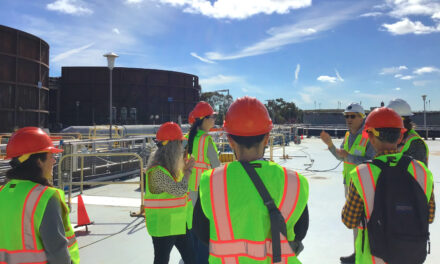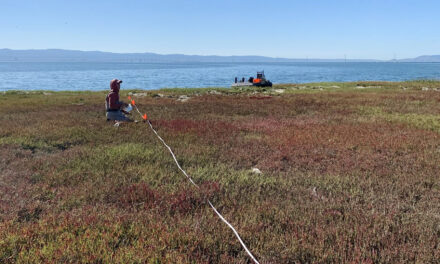Warming to Managed Retreat
To own beachfront property was once a crown jewel of the California dream. Now, many homes at or near the water’s edge are doomed as sea level rises, and for residents, evacuations will be inevitable. In Pacifica, there is talk of moving an entire beachfront neighborhood, and near Bodega Bay, homes have already been abandoned, and roadway managers are breaking ground on rerouting a short but vulnerable stretch of the coastal highway. In at least two communities on San Francisco Bay, planning experts have pondered the feasibility of floating homes. Away from the coast, in populated river valleys, climate change is also forcing community restructuring in response to flooding.
Now, land use experts, stakeholders, and government agencies are thinking hard about how to guide forward these transformations as painlessly as possible. In a recent article published in the journal Science, professors Katharine J. Mach and A.R. Siders, respectively of the University of Miami and the University of Delaware, make a case for managed retreat.
The concept is controversial. In essence, it means uprooting communities and relocating residents to higher ground. While levees can contain unruly rivers, and sea walls and other barriers can hold back the ocean, such hydraulic restraining efforts are expensive and often ultimately fail. Levees burst, and sea walls cave to the undercut-scouring of wave action. Indeed, Mach and Siders consider relocation inevitable in many places, and the key question they pose is how and when communities should make the move.
“[T]hroughout history, people have moved and retreated in response to climate,” the authors write.
Other Recent Posts
Boxes of Mud Could Tell a Hopeful Sediment Story
Scientists are testing whether dredged sediment placed in nearby shallows can help our wetlands keep pace with rising seas. Tiny tracers may reveal the answer.
“I Invite Everyone To Be a Scientist”
Plant tissue culture can help endangered species adapt to climate change. Amateur plant biologist Jasmine Neal’s community lab could make this tech more accessible.
How To Explain Extreme Weather Without the Fear Factor
Fear-based messaging about extreme weather can backfire. Here are some simple metaphors to explain climate change.
Live Near a Tiny Library? Join Our Citizen Marketing Campaign
KneeDeep asks readers to place paper zines in tiny street libraries to help us reach new folks.
Join KneeDeep Times for Lightning Talks with 8 Local Reporters at SF Climate Week
Lightning Talks with 8 Reporters for SF Climate Week
ReaderBoard
Once a month we share reader announcements: jobs, events, reports, and more.
Staying Wise About Fire – 5 Years Post-CZU
As insurance companies pull out and wildfire seasons intensify, Santa Cruz County residents navigate the complexities of staying fire-ready.
Artist Christa Grenawalt Paints with Rain
Snippet of insight from the artist about her work.

Courtesy Bay-Adapt.
That process is gaining speed now, and Mach and Siders argue that guiding this migration will result in a fairer process and a more equitable distribution of planning and resources. They make the case that planned retreat – versus unplanned, spontaneous fleeing from hazard zones – is an opportunity to bolster economies, improve social equity across communities, and even beautify them with creative infrastructure.
Floating towns are one possibility they describe. This idea has already been discussed in the Bay Area, with a draft plan for residential flotillas along the Oakland-San Leandro shoreline recently proposed by the All Bay Collective, a Resilient by Design project. Another Resilient by Design project, the Bionic Team, has proposed floating homes and canals for streets in the low-lying waterfront district of San Rafael.
The United States federal government is also paying attention to coastal climate adaptation and flooding. In Illinois, FEMA funded the full relocation of the town of Valmeyer to higher ground after severe flooding events in 1993. In 2016, a federal grant of $48 million funded what may be the nation’s first officially categorized climate relocation project in southern Louisiana. Here, the rising waters of the Gulf of Mexico have forced the relocation of residents of Isle de Jean Charles to the newly built town of The New Isle, about 30 miles north. More recently, Democrats in Congress allocated billions of dollars in September toward improving and updating flood-risk maps of the United States and enhancing flood insurance accessibility.
Climate-related upheaval will affect communities across the world. Precipitation patterns are shifting, causing wetter, more energy-packed storms that have overwhelmed river basins and forced valley dwellers to higher ground. Germany and China experienced highly destructive flooding in July, and the Eastern Seaboard was swamped with the rains of Hurricane Ida.
These types of events will force dramatic changes in how humans build and rebuild their communities, and for some regions, with government funding and expert input, climate change just might be an opportunity for growth.
More
- Reframing Strategic, Managed Retreat for Transformative Climate Adaptation, Mach & Siders, Science, June 2021
- Three Cities Confront Common Estuary, All Bay Collective, Resilent by Design, Estuary News June 2019
- San Rafael Elevates City & Canal, Bionic Team, Resilient by Design, Estuary News June 2019
- FEMA case study library, where you can search by location/state
- California Has a New Idea for Homes at Risk from Rising Seas, Buy, Rent, Retreat, NPR March 2021
- FEMA Flood Maps











